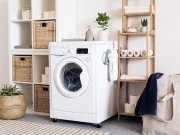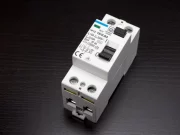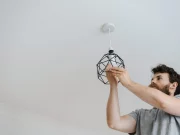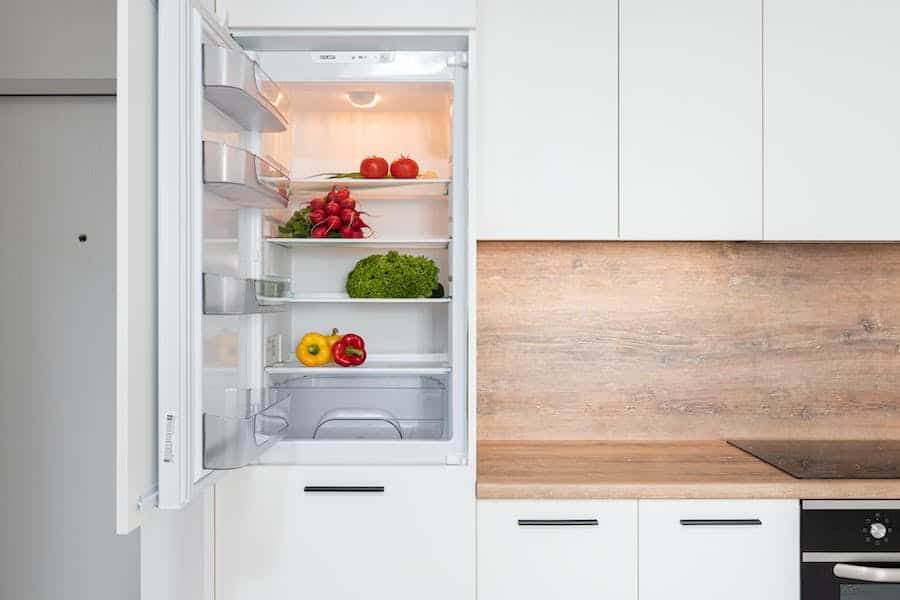Have you ever been in your kitchen, minding your own business, when suddenly you hear a strange noise coming from your refrigerator? It’s not an uncommon experience, and it can be rather puzzling. What’s even more perplexing is that sometimes, when you open the fridge door to investigate, the noise seems to vanish into thin air. So, what’s going on with your trusty refrigerator?
In this article, we’re diving deep into the world of fridge mysteries to uncover the reasons behind this curious phenomenon. We’ll explore the inner workings of your refrigerator, decipher those enigmatic sounds, and offer practical insights on how to deal with them. If you’ve ever wondered why your fridge is making noise but goes silent when you open the door, you’re in the right place. Let’s unravel the mystery together!
Why Is My Fridge Making Noise But Stops When The Door Is Opened?
When the fridge door is opened, a sensor detects the change in temperature and initiates a response to save energy. The compressor and fans temporarily stop running to reduce noise and prevent unnecessary cooling. This helps maintain efficiency and minimizes noise disruption while the door is open.
The Basics Operation Of Refrigerator
Before we delve into the specifics of why your fridge might be making noise, it’s essential to have a basic understanding of how refrigerators work. Refrigerators are complex machines that use a combination of various components, including a compressor, condenser coils, evaporator coils, and a fan, to maintain a cool and stable temperature inside.
- Compressor: The compressor is the heart of your refrigerator. It’s responsible for compressing refrigerant gas, which increases its temperature and pressure. This hot, high-pressure gas then flows through the condenser coils.
- Condenser Coils: The condenser coils dissipate heat from the hot gas, causing it to condense into a high-pressure liquid.
- Evaporator Coils: The high-pressure liquid refrigerant then enters the evaporator coils inside the freezer and fridge compartments. As it evaporates, it absorbs heat from the interior, thereby cooling the contents.
- Fan: The fan circulates air over the evaporator coils to ensure even cooling and maintain a consistent temperature.
Now that we’ve covered the basics let’s explore why your fridge might be making noise and why that noise seems to vanish when you open the door.
Possible Reasons For Fridge Noises
Now that we’ve introduced the intriguing phenomenon of your fridge making noise that mysteriously disappears when you open the door, it’s time to delve into the possible reasons behind these puzzling sounds. Understanding what might be causing your fridge to produce these noises can help you determine whether it’s a normal part of its operation or if there’s a potential issue that requires attention.
Here are some of the most common reasons for fridge noises:
1. Normal Operation:
It’s important to note that some level of noise is perfectly normal for a refrigerator. As your fridge works tirelessly to maintain a cool and stable temperature, various components come into play, and they can generate sounds. These noises typically fall within the realm of a low hum or a gentle whirring sound. In most cases, they are not a cause for concern unless they become exceptionally loud or irregular.
2. Defrost Cycle:
Your refrigerator has a built-in defrost cycle designed to prevent the accumulation of frost on the evaporator coils. During this cycle, you may hear popping or cracking noises. These sounds occur as the ice on the coils melts and drips into a pan below. Rest assured that this is a normal part of your fridge’s operation, and the noise should subside once the defrost cycle is complete.
3. Fan Issues:
If you hear a persistent buzzing or rattling noise emanating from your refrigerator, it could be due to a problem with the fan. The fan plays a crucial role in ensuring even cooling throughout the fridge’s interior. Sometimes, it may hit an obstruction or have a faulty motor, causing unusual sounds. Interestingly, this noise may stop when you open the fridge door because the fan typically halts its operation when the door is ajar.
4. Ice Maker:
If your refrigerator is equipped with an ice maker, it can be another source of intriguing sounds. Ice makers often cycle through the process of creating ice, which includes filling the ice tray with water and ejecting ice cubes. These actions can produce clicking or clunking sounds. Once again, you might notice that the noise ceases when you open the fridge door because the ice maker tends to pause during this time.
5. Water Inlet Valve:
For fridges with water dispensers or ice makers, a water inlet valve is often in place to facilitate water flow. This valve can sometimes produce a buzzing or humming noise when it’s actively filling the ice maker or the water dispenser’s reservoir. Similar to other fridge noises, this sound may temporarily cease when you open the door.
Whether the noises coming from the refrigerator are innocuous or indicate a more serious problem, knowing why they occur is essential to dealing with them in an efficient manner.
Dealing With Fridge Noises
Now that we’ve identified some common reasons behind those mysterious fridge noises, it’s essential to know how to deal with them effectively. The good news is that many of these noises are part of normal fridge operation and may not require immediate attention. However, if you find the sounds bothersome or if they become unusually loud or irregular, here are some practical steps you can take:
- Normal Noises: If your fridge is producing sounds that are part of its regular operation, there’s usually no need to worry. Refrigerators have various components, such as the compressor and fan, that generate noise while working to maintain the desired temperature. These sounds are typically consistent and predictable. However, if you notice a sudden increase in noise, it’s a good idea to investigate further.
- Fan Issues: If you suspect that the noise is coming from the fan, it’s crucial to address it promptly. A malfunctioning fan can disrupt the even distribution of cold air inside your fridge, potentially leading to inadequate cooling and food spoilage. Start by checking for any visible obstructions around the fan blades. If the noise persists or if the fan appears to be running irregularly, it’s best to contact a technician for repairs or replacement.
- Ice Maker And Water Valve: If the noises are related to your fridge’s ice maker or water inlet valve, consider temporarily disabling these features to see if the sounds stop. To do this, locate the control panel or switch for these components and turn them off. If the noise ceases, you can either leave the feature off if you don’t frequently use it, or you can have the ice maker and water valve components checked and possibly replaced if the noise continues.
- Defrost Cycle: If the noise is associated with your fridge’s defrost cycle, the best course of action is to let it complete its cycle. As mentioned earlier, the defrost cycle is a normal part of your refrigerator’s operation, and interfering with it could lead to frost buildup and reduced cooling efficiency. Once the cycle is finished, the noise should naturally subside.
In order to ensure the longevity of food and peace of mind, regular maintenance and expert assistance can help identify and address unexpected fridge noises.
Conclusion
The phenomenon of a fridge making noise but ceasing when the door is opened can be attributed to the appliance’s energy-saving and temperature-control mechanisms. When the refrigerator’s door is closed, its compressor and fans work to maintain a consistent internal temperature by removing excess heat. This process generates noise as a result of the mechanical operation. However, when the fridge door is opened, a sensor detects the change in temperature and initiates a response to save energy. To achieve this, the compressor and fans are temporarily switched off, reducing both noise and energy consumption. This ensures that the refrigerator operates efficiently while minimizing disruption and conserving energy whenever the door is opened, promoting a quieter and more energy-conscious experience for the user.





















